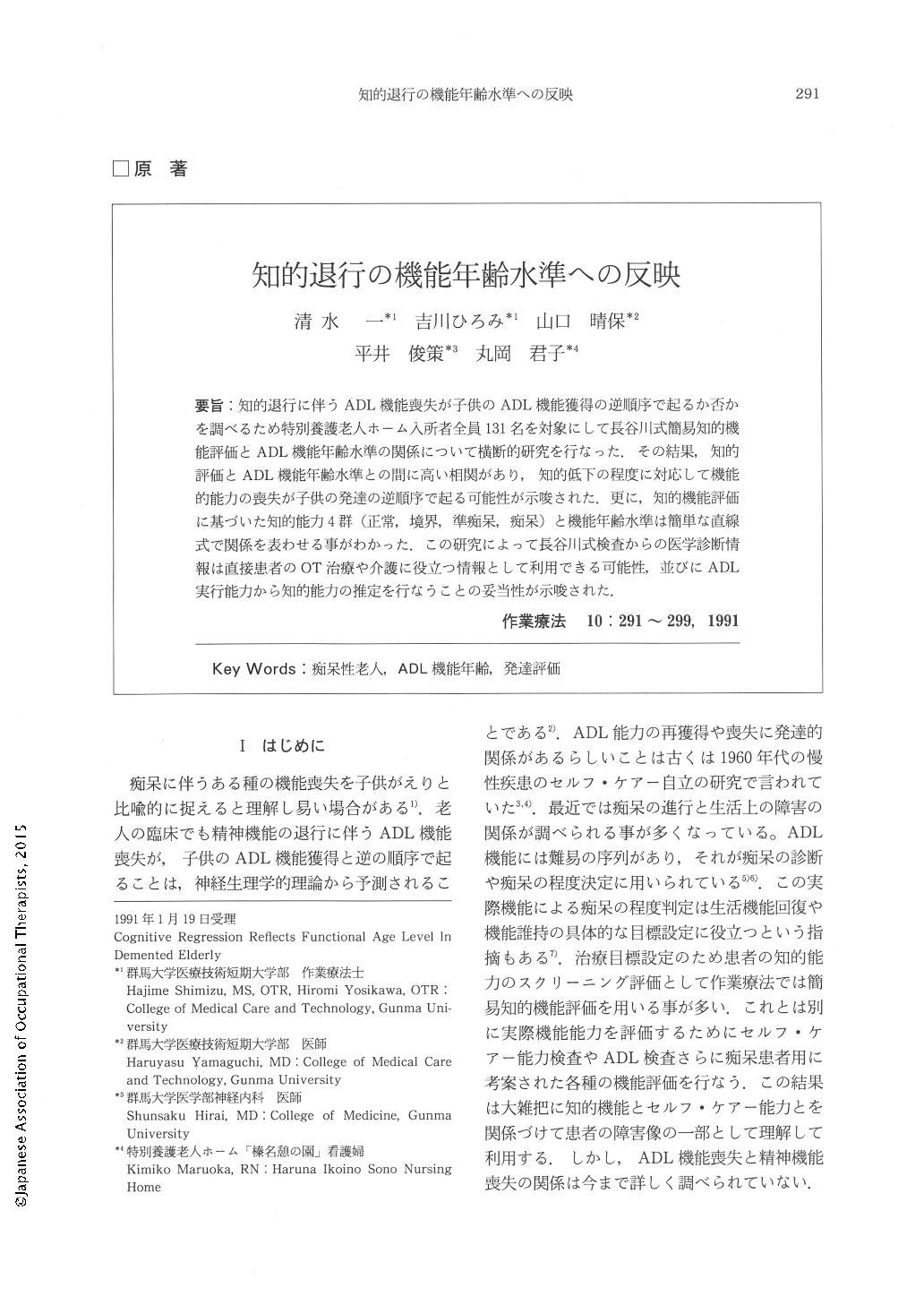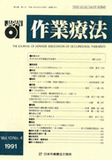Japanese
English
- 販売していません
- Abstract 文献概要
- 1ページ目 Look Inside
- 参考文献 Reference
- サイト内被引用 Cited by
要旨:知的退行に伴うADL機能喪失が子供のADL機能獲得の逆順序で起るか否かを調べるため特別養護老人ホーム入所者全員131名を対象にして長谷川式簡易知的機能評価とADL機能年齢水準の関係について横断的研究を行なった.その結果,知的評価とADL機能年齢水準との間に高い相関があり,知的低下の程度に対応して機能的能力の喪失が子供の発達の逆順序で起る可能性が示唆された.更に,知的機能評価に基づいた知的能力4群(正常,境界,準痴呆,痴呆)と機能年齢水準は簡単な直線式で関係を表わせる事がわかった.この研究によって長谷川式検査からの医学診断情報は直接患者のOT治療や介護に役立つ情報として利用できる可能性,並びにADL実行能力から知的能力の推定を行なうことの妥当性が示唆された.
This study was conducted to determine if the loss of functional ability in geriatric patients occurs in the reverse order of child development along with loss of cognitive function, and if so, what is the relationship between functional age and Hasegawa's Mental Screening Examination(HDS)scores. Also can the HDS be used not only as a mental screening test but also as a clinical tool to transfer medical diagnostic information into direct patient care? For this purpose, all of the 131 residents of a special care geriatric home were evaluated for this study. Functional skill level was determined by using the check list devised by the authors with 13 items taken from child development of 3 months to about 12 years of age. Many patients who have motor impairments showed lower scores in the items which need motor ability but could perform higher items requiring less motor skill. The analysis of HDS and functional skill data was done by using Pearson's product moment correlation coefficient, Spearman's nonparametric correlation coefficient, and a regression equation.
The results showed that there is a good correlation between HDS scores and functional skill level. As hypothesized, the loss of functional ability occurred in the reverse order of child development. Also there is a good correlation with functional age level, thus making it possible to estimate functional age level. Clinically, the HDS scores can be used as good clinical tool to transfer medical information into direct patient care.

Copyright © 1991, Japanese Association of Occupational Therapists. All rights reserved.


